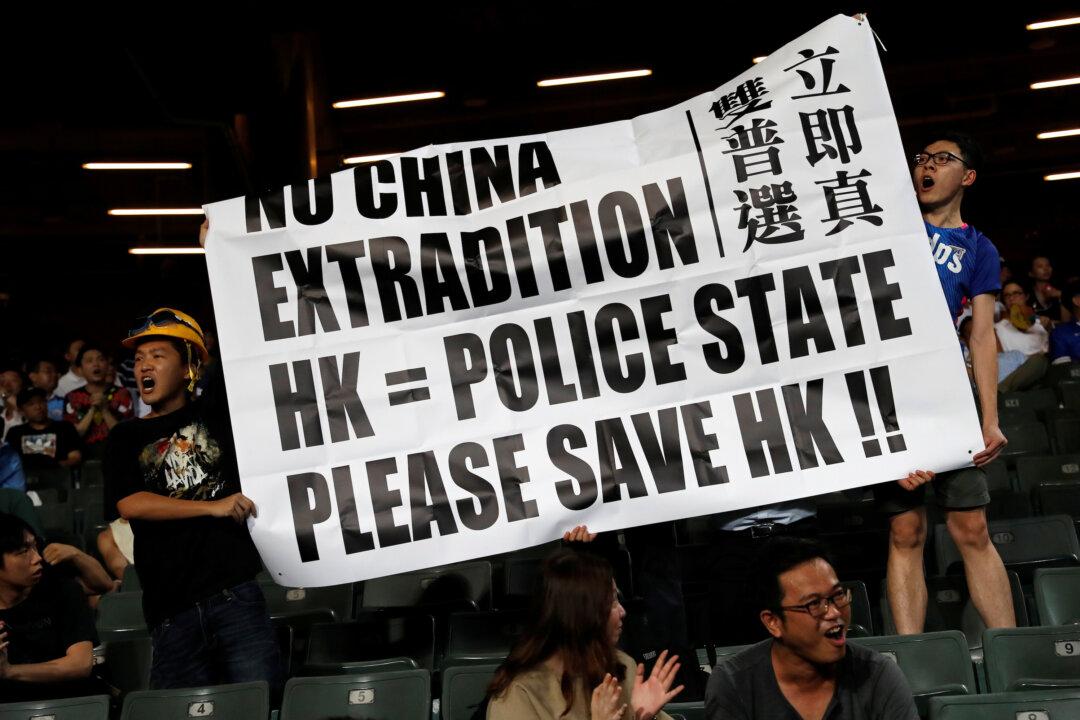HONG KONG—Hong Kong soccer fans sang protest songs and waved anti-government banners as politics spilled into the sporting arena on July 24 during a friendly game involving English Premier League champions Manchester City in the China-ruled city.
Before the game, a few protesters handed out fliers outside the stadium where Man City played local outfit Kitchee.





